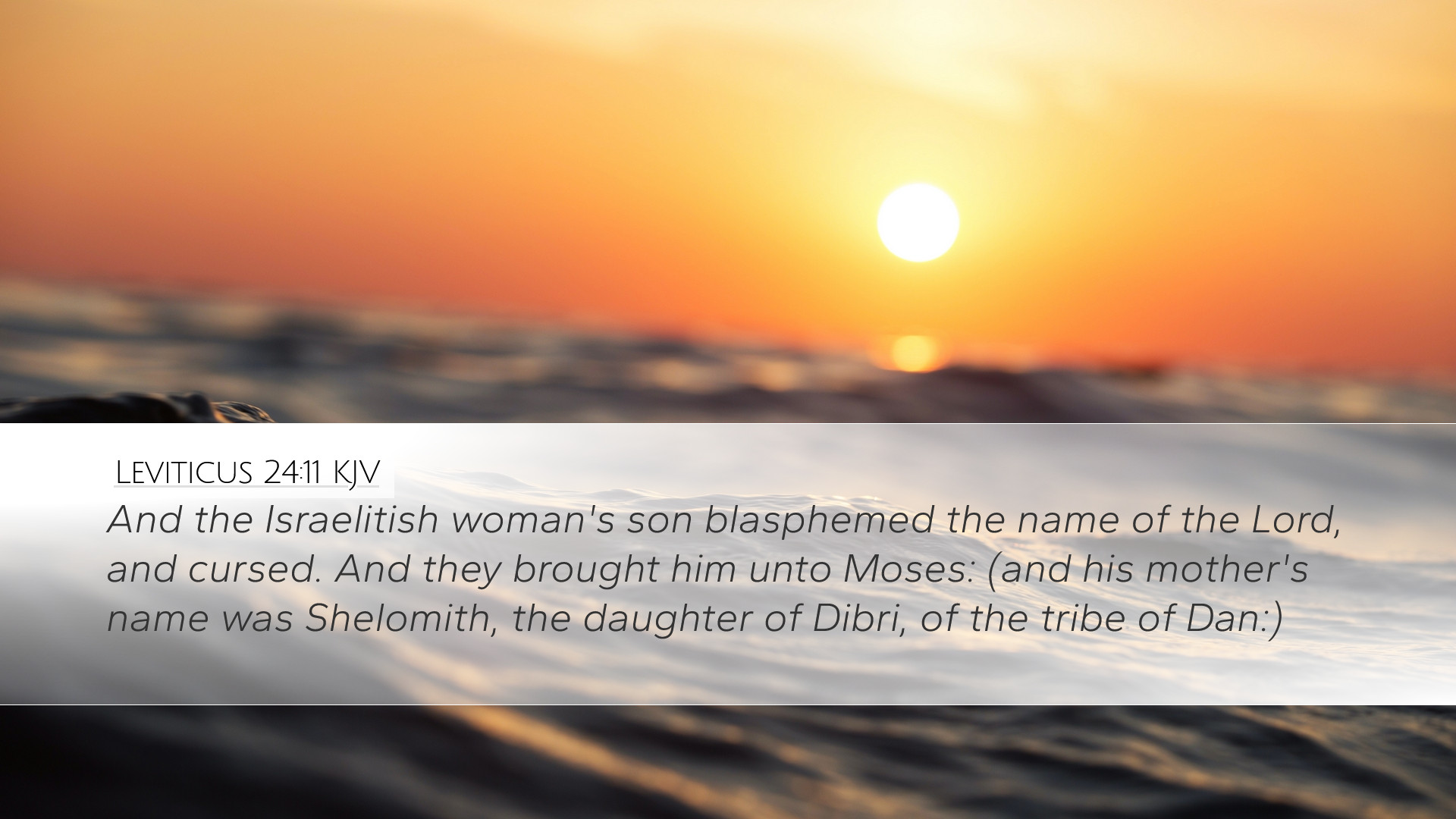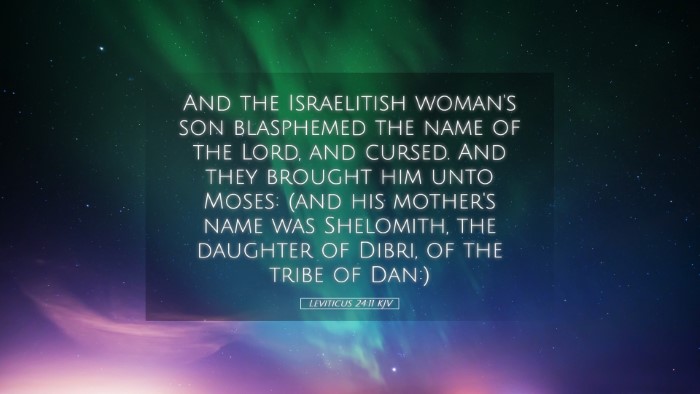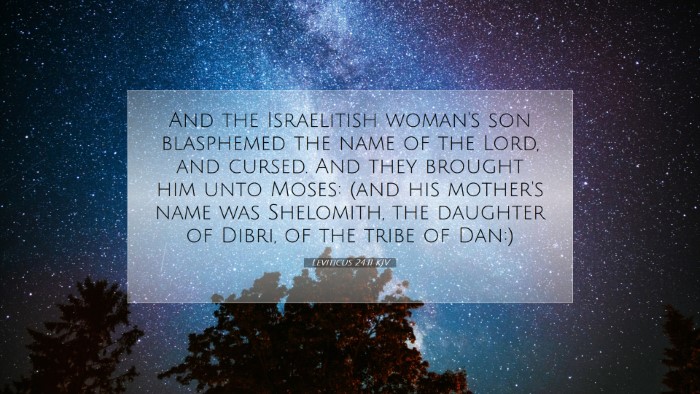Commentary on Leviticus 24:11
Verse Context: Leviticus 24:11 states, "And the Israelitish woman’s son blasphemed the name of the Lord, and cursed. And they brought him unto Moses: and his mother’s name was Shelomith, the daughter of Dibri, of the tribe of Dan." This verse is part of a larger legislative framework that sets forth the penalties for blasphemy, emphasizing the sanctity of God's name and the seriousness of disrespecting it.
Historical Context
The Israelites had recently received the law at Sinai. Within this community, God sought to establish not only a system of worship but a societal structure that reflected His holiness. The incident described in Leviticus 24 illustrates the ongoing challenges of maintaining purity and order within the community, particularly in light of individual actions that contradict collective identity and covenant obligations.
The Nature of Blasphemy
Matthew Henry emphasizes that blasphemy represents a severe transgression, as it challenges the very character of God. To blaspheme is to show contempt not only for God's name but for His essence and authority. The act of cursing God reflects deep-rooted rebellion and ingratitude.
Adam Clarke notes the cultural significance of a person’s name in biblical times, where names carried meaning and could represent a person's character or family's heritage. By invoking curse upon God’s name, this act represents a profound moral and spiritual degradation, one that could not go unpunished if the community was to remain holy before the Lord.
Divine Justice and Order
Albert Barnes comments on the necessity of swift and decisive judgment in such cases to deter others from similar behavior. The law that would follow this incident sought to establish clear boundaries for the Israelites, for the community was to be a reflection of God's holiness.
- Deterrent Effect: The public nature of the punishment served as a deterrent against blasphemy and reverence for the name of the Lord.
- Moral Responsibility: The Israelite community was called to hold one another accountable, promoting a culture of responsibility and honor toward God.
Theological Implications
The incident in Leviticus 24:11 provides profound insights into the nature of sin in relation to God’s holiness. The act of cursing God is indicative of a broader systemic issue, one that reflects a heart disconnected from divine reverence. Matthew Henry insightfully suggests that blasphemy is not just a crime against society but an atrocity against the very foundation of faith.
This verse invites pastors and theologians to reflect on how casual dishonor towards God’s name persists in modern society. Whether it is through blasphemous speech or actions that contradict biblical teachings, the underlying issue remains a heart posture that lacks awe and fear of the Lord.
Applications for Today
The relevance of this scripture bridge connects ancient Israel to contemporary believers. Albert Barnes asserts that while the cultural ramifications of blasphemy may differ in modern contexts, the underlying principle – honoring God above all – remains unchanged.
- Defending the Name of the Lord: Individuals and communities are called to uphold the sanctity of God’s name through public and private witness.
- Heart Check: Regular self-assessment is essential; believers must ensure that their speech and actions reflect integrity and respect for God.
- Community Accountability: Encouraging one another in faithfulness and confronting behaviors that dishonor God fortifies collective spiritual health.
Conclusion
Leviticus 24:11 is not merely an historical account; it is a timeless reminder of the weightiness of God’s name. As Adam Clarke summarizes, understanding the gravity of blasphemy underlines a core aspect of our relationship with God: reverence. For theologians, pastors, and students of the Word, this verse challenges the community of faith to consider how they bear God’s name in a world that often lacks reverence.
Reflection: What does it mean for our communities to honor God’s name in the face of societal disrespect? How can we promote a culture of reverence in our churches and daily lives?


